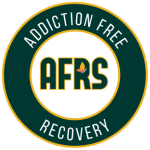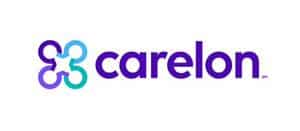Addiction is a complex and challenging condition that affects not just the individual struggling with substance use but also their loved ones. Families often bear the emotional, psychological, and even financial burdens that come with addiction, leading to strained family relationships and communication breakdowns.
Essential Takeaways
- Family Therapy is Crucial for Lasting Recovery: Family therapists address the underlying issues within the family that contribute to addiction. By involving the entire family in the recovery process, it creates a supportive environment that is essential for long-term sobriety and healing.
- Improved Communication Leads to Better Outcomes: Effective communication patterns are key to resolving conflicts, rebuilding trust, and strengthening relationships. Therapy sessions teach essential problem-solving skills that help families navigate the challenges of addiction and support their loved ones through recovery.
- Holistic Healing for the Entire Family: Addiction affects everyone in the family, not just the individual struggling with substance use. Family therapy promotes holistic healing by addressing the emotional, psychological, and relational aspects of addiction, leading to healthier, more resilient family dynamics.
However, family involvement in the recovery process can be a powerful tool in promoting long-term sobriety and healing. One of the most effective ways to involve family members in recovery is through family therapy. This blog explores the critical role of family therapy in addiction recovery, its benefits, and how it can pave the way for lasting change.
The Vital Role of Family in Addiction Recovery
Addiction is often referred to as a “family disease” because it impacts everyone in the family unit, not just the individual struggling with substance use. When a loved one is battling addiction, the entire family dynamic is disrupted, leading to stress, confusion, and sometimes, despair. However, involving the family in the recovery process through systemic family therapy can lead to more successful outcomes.
Family therapy provides a structured environment where family members can address their concerns, express their emotions, and work together to support their loved one’s recovery. It helps rebuild trust, improve communication, and foster a supportive atmosphere, which is crucial for long-term sobriety.
In many cases, family therapy also addresses underlying issues such as co-dependency, enabling behaviors, and unresolved conflicts, all of which can contribute to addiction. For example, understanding interactional patterns and communication styles can greatly enhance the effectiveness of therapy.
Understanding Family Therapy in Addiction Treatment
What is Family Therapy? Family therapy is a form of psychotherapy that involves family members in the treatment process. Unlike individual therapy, which focuses solely on the person with the addiction, family therapy addresses the dynamics within the entire family unit. It recognizes that the family plays a significant role in the individual’s behavior and recovery, and that healing must occur on both individual and familial levels.
In the context of addiction recovery, family therapy helps family members understand the nature of addiction, its effects on their relationships, and the role they can play in supporting their loved one’s recovery. By working together, families can create a healthier, more supportive family environment that fosters long-term sobriety.
How Family Therapy Works in Addiction Recovery
Family therapy sessions typically involve a therapeutic process guided by a therapist who facilitates discussions about family members’ experiences, concerns, and hopes for the future. The therapist may use various therapeutic approaches, such as Cognitive Behavioral Therapy (CBT), Multidimensional Family Therapy (MDFT), or Behavioral Couples Therapy (BCT), to address specific issues within the family dynamic. These types of family therapy focus on the unique challenges faced by each family member, allowing for a tailored approach that enhances recovery outcomes.
During these sessions, family members learn how to communicate more effectively, resolve conflicts, and support each other in the recovery process. The therapist also helps the family set goals, establish boundaries, and develop strategies for managing triggers and preventing relapse. By fostering open communication and mutual support, family therapy can significantly enhance the recovery process.
How Addiction Affects the Family Unit
Addiction has a profound impact on the entire family. It’s not just the individual who suffers; family members often experience a range of emotional, psychological, and financial challenges as well. Understanding these impacts is crucial for effective treatment and recovery.
Emotional and Psychological Impact
The emotional toll of addiction on family members can be overwhelming. Parents, siblings, spouses, and children often experience a range of emotions, including guilt, anger, fear, and helplessness. They may blame themselves for their loved one’s addiction, feel angry about the situation, or fear the future. Over time, these emotions can lead to anxiety, depression, and other mental disorders.
Strained Relationships and Communication Breakdowns
Addiction can severely strain relationships within the family. Trust is often broken, communication deteriorates, and conflicts become more frequent. Family members may find themselves constantly worrying about their loved one’s behavior, leading to a cycle of arguments, blame, and resentment. In some cases, relationships may become so strained that family members distance themselves from each other, further exacerbating the situation.
Financial and Social Consequences
Addiction can also have significant financial and social consequences for the family. The cost of supporting a loved one’s addiction, including legal fees, medical expenses, and lost wages, can place a heavy financial burden on the family. Additionally, the stigma associated with addiction can lead to social isolation, with family members withdrawing from their community out of shame or fear of judgment.

How Family Therapy Supports Recovery
Family therapy offers a pathway to healing by addressing the complex dynamics that contribute to addiction. It not only supports the individual in recovery but also helps the entire family heal and grow together.
Rebuilding Trust and Strengthening Relationships
Trust is often one of the first casualties of addiction. Family therapy focuses on rebuilding trust by fostering open and honest communication. Through guided discussions, family members can express their feelings, share their experiences, and begin to understand each other’s perspectives. This process helps repair damaged relationships and strengthens the bonds that are essential for long-term recovery.
Furthermore, active listening and recognizing communication deviance are crucial skills taught during these sessions, ensuring that every family member feels heard.
Improving Communication and Conflict Resolution
Effective communication is key to any healthy relationship, but it can be particularly challenging in families affected by addiction. Family therapy teaches communication patterns that promote understanding and reduce conflict. By learning to listen actively, express emotions constructively, and resolve disagreements peacefully, families can create a more supportive and harmonious environment.
Creating a Supportive Home Environment
A supportive home environment is crucial for successful recovery. Family therapy helps families create an environment where the individual in recovery feels safe, understood, and supported. This includes setting clear boundaries, establishing routines, and developing coping strategies for managing triggers and stress. A positive home environment not only aids in recovery but also reduces the risk of relapse.

Addressing Co-Dependency and Enabling Behaviors
Co-dependency and enabling behaviors are common in families affected by addiction. Co-dependency occurs when family members become overly reliant on each other for emotional support, often to the detriment of their own well-being. Enabling behaviors, on the other hand, involve actions that inadvertently support the individual’s addiction, such as giving them money or covering up their behavior.
Family therapy helps identify and address these behaviors, promoting healthier relationships and more effective support strategies. By breaking the cycle of co-dependency and enabling, families can empower their loved ones to take responsibility for their recovery. This may involve introducing behavioral techniques and structural techniques that are effective in shifting these patterns of interaction.
Different Approaches to Family Therapy
Family therapy is not a one-size-fits-all approach. There are several different types of family therapy that can be used, depending on the specific needs of the family and the individual in recovery.
Behavioral Couples Therapy (BCT)
Behavioral Couples Therapy (BCT) is designed for individuals in recovery who are in committed relationships. This approach focuses on improving relationship dynamics and promoting sobriety by enhancing communication, increasing positive interactions, and reducing conflict. BCT has been shown to be effective in supporting long-term recovery and improving relationship satisfaction.
Multidimensional Family Therapy (MDFT)
Multidimensional Family Therapy (MDFT) is particularly effective for adolescents struggling with substance use. This approach addresses the complex factors that contribute to addiction, including family systems, peer influences, and individual behavior. MDFT involves working with the adolescent, their family, and other relevant parties, such as teachers or social workers, to create a comprehensive treatment plan that supports recovery.
Structural Family Therapy (SFT)
Structural Family Therapy (SFT) focuses on realigning the family structure to support recovery. This approach involves identifying and changing dysfunctional patterns within the family, such as hierarchies, roles, and communication styles. SFT aims to create a more balanced and supportive family dynamic that promotes long-term sobriety.
Family Systems Therapy
Family Systems Therapy views the family as an interconnected system, where each member’s behavior affects the others. This approach seeks to identify and address the underlying issues within the family system that contribute to addiction. By addressing these issues, Family Systems Therapy helps create a healthier and more supportive environment for recovery.
Incorporating Family Therapy into a Comprehensive Treatment Plan
For family therapy to be effective, it must be integrated into a comprehensive addiction treatment plan. This plan should address the needs of both the individual in recovery and their family, ensuring that all aspects of the addiction are treated.
Assessing Family Dynamics and Readiness
Before starting family therapy, it’s essential to assess the family dynamics and readiness for therapy. This assessment helps the therapist understand the current interactions within the family, identify potential challenges, and tailor the therapy to meet the family’s specific needs.
Setting Goals and Expectations
Setting clear goals and expectations is crucial for successful family therapy. This includes discussing the goals of family therapy, establishing guidelines for communication, and agreeing on how to support each other during the recovery process. By setting clear goals, families can stay focused and motivated throughout the therapy journey.
Regular Check-ins and Ongoing Support
Family therapy should not be a one-time event; it requires ongoing commitment and support. Regular check-ins and follow-up sessions help families monitor their progress, address any emerging challenges, and reinforce the skills learned during therapy. This ongoing support is essential for maintaining healthy family dynamics and promoting long-term recovery.
Conclusion
Family therapy plays a vital role in addiction recovery by addressing the complex dynamics that contribute to addiction and promoting healing for the entire family. By improving communication, rebuilding trust, and creating a supportive environment, family therapy enhances the recovery process and fosters lasting change. If you or a loved one is struggling with addiction, consider seeking the support of a qualified family therapist to navigate this challenging journey together.



























